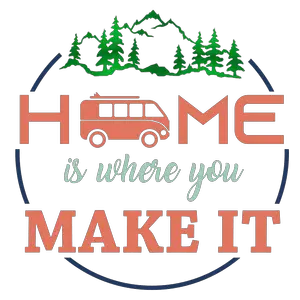Hey! This site is reader-supported and we earn commissions if you purchase products from retailers after clicking on a link from our site.
In this installment of my series of checklists, I will share with you some of favorite items to bring along in terms of camping gear. I usually prefer the comfort of my RV, but I still like to occasionally go on an overnight hiking and camping adventure. Not all of these suggestions may apply to your needs and you may find that other gear is essential for what you want to do, but this should give you an idea of some of the gear that I would recommend if you want to go camping.
- Tent: Obviously a tent is a good thing to have if you have no RV or are away from your rig for a day or two. Since weather can sometimes be unpredictable, having a good tent that can be set up quickly if need be is important to have.
- Backpack: Shop around for a backpack suitable for your needs. If you’re just day hiking you won’t need anything too large, but you will still need to carry some essentials so a decent backpack is a must.
- Water purifier: If you’re camping in an area where well or city water is not provided yet and there is a clean body of water such as a lake or stream nearby, you should consider buying a small water purifier. These can come in handy for day hikes as well.
- Collapsible water bottles: These are especially good for day hikes and if you are an advocate for recycling and repurposing like I am, then you definitely to get some of these. My thinking is that if you follow the credo of “pack it in and pack it out” then you should pack out something you can use again.
- Sleeping bag: You’ll want to stay comfortable when you’re camping so I would recommend getting a good sleeping bag. Depending upon what time of year you are camping and the weather, you should consider getting a sleeping bag rated for a certain temperature or even one rated for zero or below.
- First-aid kit: You should always have a first-aid kit on hand for any camping or hiking trip. You won’t need one as large as the type I recommend for your RV, but you should have one that is adequate for your hike or short term camping trip. I also highly recommend that you purchase a kit that has a tourniquet in its inventory. It’s highly unlikely you will ever need it, but this simple piece of equipment can save a life in the event of a compound fracture or sudden blood loss from an extremity.
- Matches or a lighter: If campfires are permitted where you are going, it would be wise to carry both of these to start a fire for cooking or warmth.
- Bear spray: You may never need this, but if you do, you’ll be happy you had it around. It’s also a good thing to have around if you ever encounter an unwanted human intruder as well.
- Camp stove: For longer camping trips, I would recommend that you take along a small camping stove as well as some lightweight cookware and dishware.
- High energy food: For day trips or even an overnight excursion, I like to take things like fresh fruit, energy bars, and beef jerky type snacks to replenish my calories as I take a break from hiking.
- Flashlights: Having a good flashlight around is essential if you plan on being out at night. You may even want to get a headlamp too. Also, have some extra batteries on hand.
- All-in-one tool: This is a good tool to keep on hand when camping because you never know when you may need a screwdriver, pliers, or even a knife to fix a problem or repair some gear.
- Proper clothing and footwear: Having the proper clothing for the environment you are camping in is crucial to your comfort. I always dress in layers so that I can remove articles or put them back on accordingly to stay either cooler or warmer. I also recommend you consider buying a set of good rain gear as well.
- Watertight container: I like to have a small air and watertight container on hand to keep my matches, wallet, and cell phone in case I get caught in the rain or fall into the water if I am fishing somewhere.
If you’re camping alone, make sure to read Lindsey’s guide on how to stay safe while traveling solo.




